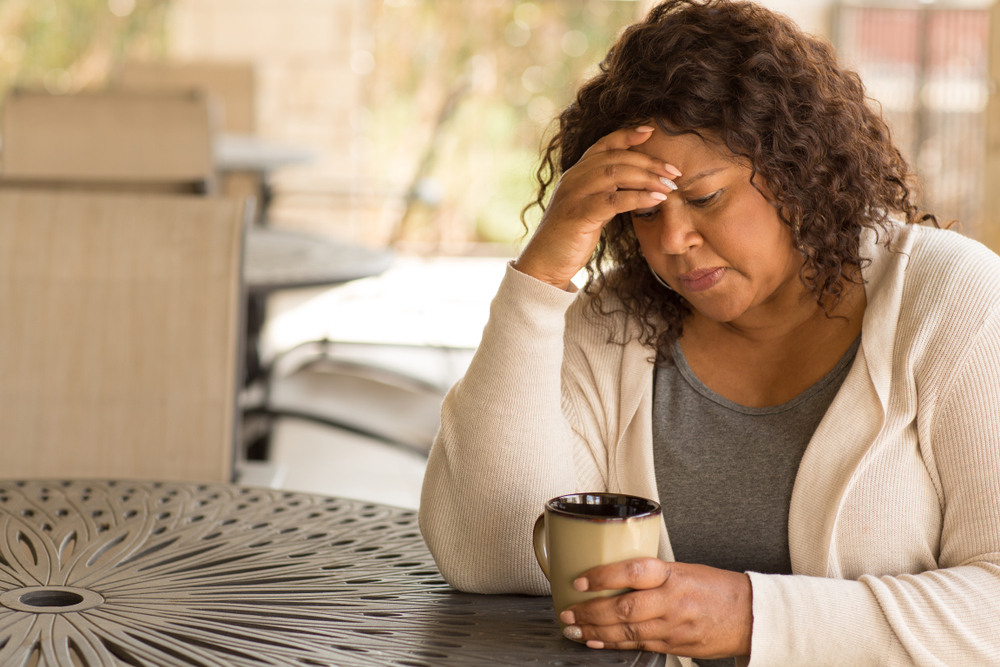The dating landscape after 50 isn’t what it used to be. While some call it the “golden age” of dating, the reality is more complicated than the greeting cards would have you believe. Here’s what nobody tells you about finding love in your fifth decade and beyond.
1. Your Dating Pool Has Baggage—Including You

Everyone at this age carries a past—divorces, kids, emotional scars, and decades of habits that won’t change overnight. You’re not meeting blank slates anymore, you’re meeting fully written books with complicated plotlines and some torn pages. Your potential partners have established routines, financial commitments, and relationship patterns that are deeply ingrained. The key isn’t finding someone without baggage—it’s finding someone whose baggage matches yours in a way that makes sense.
2. The Online Dating Landscape Is Brutal

Dating apps feel like they were designed by twenty-somethings who think anyone over 45 is “elderly.” The profile pictures you encounter range from obviously decades old to “my kid helped me take this selfie.” Half of your peers don’t understand how to use the technology, while the other half are surprisingly adept at using it to misrepresent themselves. You’ll spend more time trying to decode what “active lifestyle” really means than actually going on dates. And let’s be honest—trying to sum up fifty years of life experience in a 500-character bio feels like trying to fit a novel onto a Post-it note.
3. Living Arrangements Are Tricky

The question of where and how to live together is more complicated than ever. You both likely own homes, have established communities, and accumulated decades of stuff. The prospect of merging households means deciding whose furniture stays and whose goes, which neighborhood you’ll live in, and how to handle property ownership. These discussions are further complicated by considerations about proximity to children, grandchildren, or aging parents. The logistics of combining lives built over decades can be overwhelming.
4. Independence Is A Double-Edged Sword

You’ve spent years building your life exactly how you like it, and so has your potential partner. The independence that makes you both interesting people can also make it harder to blend your lives. Your carefully curated routines and habits might clash with theirs in ways that are hard to reconcile. The compromise required for relationships feels more challenging when you’ve grown comfortable with doing things your way. Finding the balance between maintaining independence and building connection becomes an art form.
5. Your Social Network Is Working Against You

Your friends are mostly married, widowed, or too exhausted from their own lives to play matchmaker. The organic ways you used to meet people—through work, social circles, or random encounters—have shrunk faster than a wool sweater in hot water. Your social circle is more interested in sharing grandkid photos than setting you up on blind dates. The friends who do try to help often have an outdated understanding of what you’re looking for. And the dreaded “I know someone perfect for you” usually means they know another single person who happens to be within ten years of your age.
6. Your Standards Are Both Higher and Lower

You’re no longer willing to tolerate the drama you put up with in your younger years, but you’re also more realistic about what really matters. The dealbreakers of your youth (wrong taste in music, unfashionable clothes) have been replaced by more practical concerns like financial stability and emotional intelligence. You know yourself better now and won’t settle for less than what you need, but you’re also wise enough to know that perfection is a myth. Your wish list has gotten shorter but more meaningful, focusing on substance over style.
7. Time Hits Different After Fifty

The urgency isn’t about biological clocks anymore, but there’s still a time pressure that feels uniquely middle-aged. You’re aware that starting over means investing years into building something new, while simultaneously feeling like you don’t want to waste any more time on the wrong person. Every first date comes with the weight of wondering how many more “fresh starts” you have in you. The math of building a relationship feels different when you’re thinking about how many good years you have left rather than how many years are ahead.
8. Family Dynamics Are Complicated

You’re not just dating a person—you’re potentially inheriting adult children, grandchildren, and aging parents who need care. Your date’s family obligations might include paying for a kid’s grad school, babysitting grandchildren three days a week, or managing a parent’s medical care. These responsibilities can’t be ignored or wished away like the minor family dramas of younger dating. The success of your relationship often depends as much on how your families mesh as on how you two get along.
9. Financial Conversations Are Non-Negotiable

Money talks aren’t just about who pays for dinner anymore—they’re about retirement savings, debt, and estate planning. You need to know if a potential partner is still paying off their divorce lawyer or supporting adult children. The financial decisions someone has made over the past few decades matter more than their current salary. These conversations feel awkward but are essential because you’re too old to rebuild from financial disaster. Your retirement plans need to be compatible, or at least not actively conflicting.
10. Health Becomes A Major Factor

Every potential partner comes with a medical history that matters more than you’d like it to. You’re not just discussing current health but family health history and lifestyle choices that impact the future. Someone’s approach to healthcare, exercise, and wellness can make or break compatibility at this age. The reality of managing chronic conditions or supporting a partner through health challenges becomes part of the dating equation. You have to think about whether you’re ready to be a caregiver if things go that way.
11. The Rules Keep Changing

Modern dating norms around texting, social media, and meeting protocols feel like learning a foreign language without a translator. What used to be standard (calling to ask someone out) might now be considered awkward or pushy. Your attempts to follow the “old rules” might make you seem out of touch, but the new rules aren’t exactly intuitive, are they? The learning curve is steep, and the rules seem to change just when you think you’ve figured them out.
12. Past Relationships Cast Long Shadows

Everyone’s past relationships affect their present behavior in ways that are both obvious and subtle. Trust issues from previous marriages don’t disappear just because you’re ready for something new. The ghosts of relationships past show up in everything from communication styles to holiday traditions. You’re not just dealing with your own relationship history but also your date’s emotional scar tissue. The challenge isn’t finding someone undamaged—it’s finding someone whose healing process complements yours.
13. Energy Levels Matter More Than Ever

Dating takes a different kind of energy at this age, and not everyone has the same reserves. The late-night dinners of your youth might now conflict with preferred bedtimes or energy levels. Planning dates requires considering stamina as much as interest or availability. The reality of physical limitations or energy constraints can affect everything from date planning to travel possibilities. Finding someone whose energy patterns match yours becomes surprisingly important.
14. Technology Creates A Generation Gap

The digital divide among over 50 daters can be vast and frustrating. Some of your peers navigate social media and dating apps like pros, while others can barely send a text message. Your comfort level with technology can significantly impact your dating pool and communication options. The learning curve for dating technology feels steeper at this age, and keeping up with new platforms and protocols can be exhausting. The pressure to be tech-savvy adds another layer of complexity to dating.
15. Emotional Availability Has New Obstacles

People carry different kinds of emotional unavailability at this age—from unprocessed grief over lost spouses to unresolved anger from bitter divorces. The capacity for emotional intimacy might be impacted by decades of relationship patterns or defense mechanisms. Past hurts and disappointments can make people more cautious about opening up again. Finding someone emotionally available and ready for a relationship requires patience and understanding of these deeper barriers.
14. The Stakes Feel Higher

Dating over 50 comes with a heightened awareness of what’s at risk—emotionally, financially, and practically. You have more to protect and potentially more to lose than in your younger years. The fear of making a mistake feels more significant when you consider the impact on retirement plans, established families, and emotional well-being. Every relationship decision carries the weight of decades of experience and future implications. The pressure to make the “right” choice can make dating feel more serious and less carefree than it did in your youth.
16. The Intimacy Talk Is Different Now

Intimacy discussions at this age involve topics that never came up in your younger years, like medication schedules and joint replacement recovery times. The good news is you’re old enough to be honest about what you want and need in the bedroom without blushing. The awkward news is that your body might have different plans than your mind, and that’s a conversation you need to be prepared to have. And despite what pharmaceutical commercials suggest, these conversations require more finesse than just smiling knowingly across a candlelit dinner.








